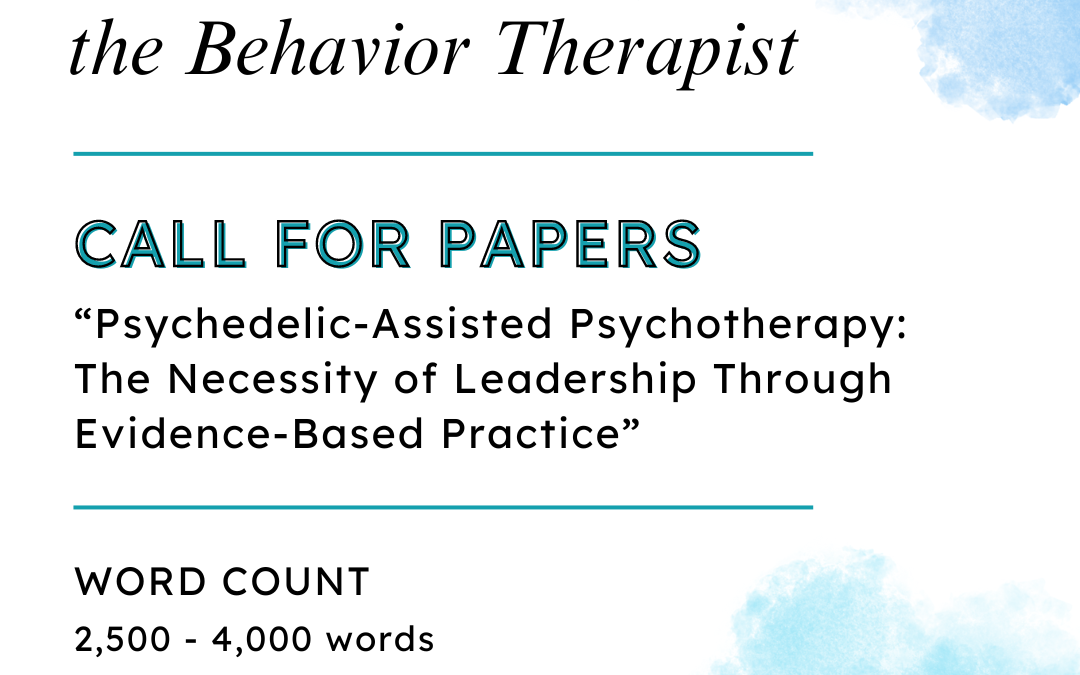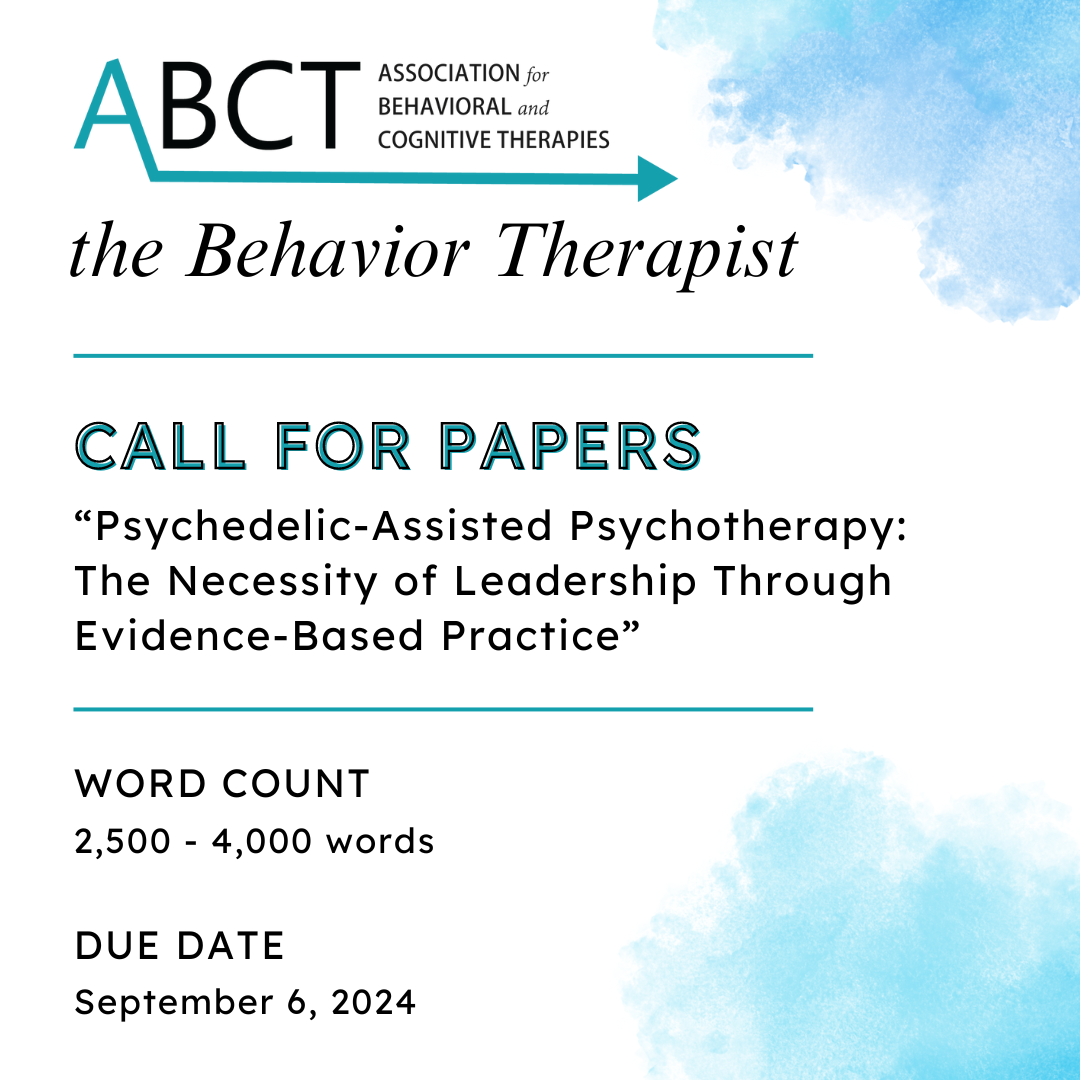Find a CBT Therapist
Search through our directory of local clinicians.
Call for Papers — Special Issue: Psychedelic-Assisted Psychotherapy: The Necessity of Leadership Through Evidence-Based Practice
the Behavior Therapist (tBT), a journal published by the Association for Behavioral and Cognitive Therapies (ABCT), is currently seeking submissions for a special issue: Psychedelic-Assisted Psychotherapy: The Necessity of Leadership Through Evidence-Based Practice. The special issue is being guest edited by Drs. Monnica Williams and Matthew Skinta and is tentatively set for an early 2025 publication.
The journal is seeking submissions that focus on issues related to the importance of psychologists and other mental health therapists as leaders in the science of psychedelic-assisted psychotherapy. Although the special issue is open to articles about psychedelic-assisted psychotherapy and current developments, a priority is to showcase articles that highlight the value that cognitive-behavioral therapy and perspectives bring to this domain.
This includes, but is not limited to:
- methodological considerations;
- the study of set and setting;
- behavioral articulations of the psychedelic experience;
- the integration of cognitive-behavioral innovations as specific tools of preparation and integration
The special issue also aims to publish articles that are representative of diverse communities and that highlight intersectionality (i.e., the intersection of multiple marginalized identities).
If you are interested in submitting an article for consideration, please email Dr. Williams ([email protected]) and Dr. Skinta ([email protected]) a brief paragraph or abstract describing what you are interested in writing about by Friday, September 6. Article should be between 2,500 and 4,000 words.


